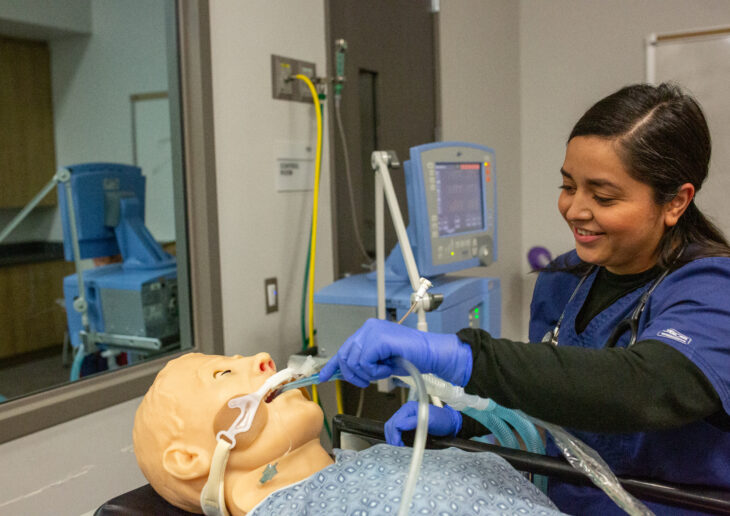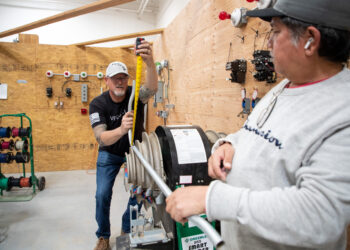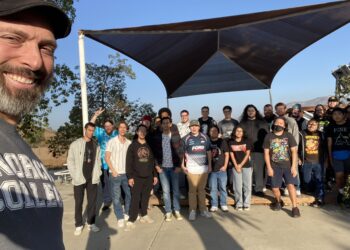A Breath of Fresh Air: Crafton Hills College Unveils First Bachelor’s Degree Program in Respiratory Care

Crafton Hills College will launch the first bachelor’s degree program among the 12 Inland Empire/Desert colleges in the spring. CHC’s Respiratory Care students can enroll for the first cohort of the Respiratory Care bachelor’s degree program, which kicks off in January 2024. Students who have completed an associate of science in Respiratory Care from Crafton Hills, or another accredited college or university, are welcome to apply.
“Crafton Hills College is one of the premiere community colleges that offers training in a variety of health care fields,” begins Michael Sheahan, faculty co-chair and director for the Respiratory Care program. “With more career and technical programs in the future, our career and technical education is a large focus of the college and service to the community.
“Our bachelor’s degree in respiratory care will be the fourth in the state and the third at the community college level.”
The opportunity gives students an accessible pathway to achieve a successful career in the respiratory care field. Thanks to CHC’s well-rounded curriculum and background, students are learning the fundamental concepts of respiratory care and additional specialty areas, including pathophysiology, neonatal care, and critical care.
Plus, respiratory care professionals are in high demand. According to ONET, the projected job growth rate for respiratory therapists is 25 percent in California, with a projected growth rate of 13 percent across the United States through 2030. CHC’s bachelor’s degree program couldn’t come at a better time.
“Leadership positions in health care require advanced degrees and this is the first step to respiratory therapists reaching their potential and moving forward in the health care environment,” Sheahan says about the upcoming program. “This will help to improve care at the patient level and raise the bar for the future as this field moves to require a higher degree of preparedness in health care.
“It will also help with advancement in the health care setting by preparing graduates with the necessary tools to accomplish their goals in the health care and educational environments.”
With respiratory care being an integral part of the healthcare industry, a bachelor’s degree can give
students a boost when pursuing leadership positions in the field. These careers could include emergency respiratory therapists, critical care specialists, pulmonary function therapists, and more.
“This [program] will allow advanced degrees at a reasonable cost to students throughout California and help with the continuing mission at Crafton Hills College, which is to prepare students for success in the future,” Sheahan states.
Similar programs among Inland Empire/Desert colleges include Victor Valley College’s Respiratory Therapy program. Program Director Dr. Traci Marin says VVC’s comprehensive program is also on the path toward launching a bachelor’s degree program of its own.
“VVC has the largest pool of clinical sites available for respiratory therapy students in Southern California,” Marin proudly states. “Students obtain experience in the clinical setting working alongside a respiratory care practitioner while being guided by experienced clinical instructors.”
These students rotate through over 15 different clinical sites to ensure they are gathering experience from every unique specialty the sites have to offer. Students are also mentored in vital skillsets such as problem solving, critical thinking, and the ability to ask relevant questions.
“As healthcare is an ever-changing field that continues to evolve and grow each day, VVC students learn the inquiry skills to keep up with the changing technology, equipment, modalities, medications, and best practices in the medical field,” Marin continues.
With the growing demands in the respiratory care field and the upcoming bachelor’s degree programs, students in the region are prepared to leverage a successful career in the healthcare industry.



